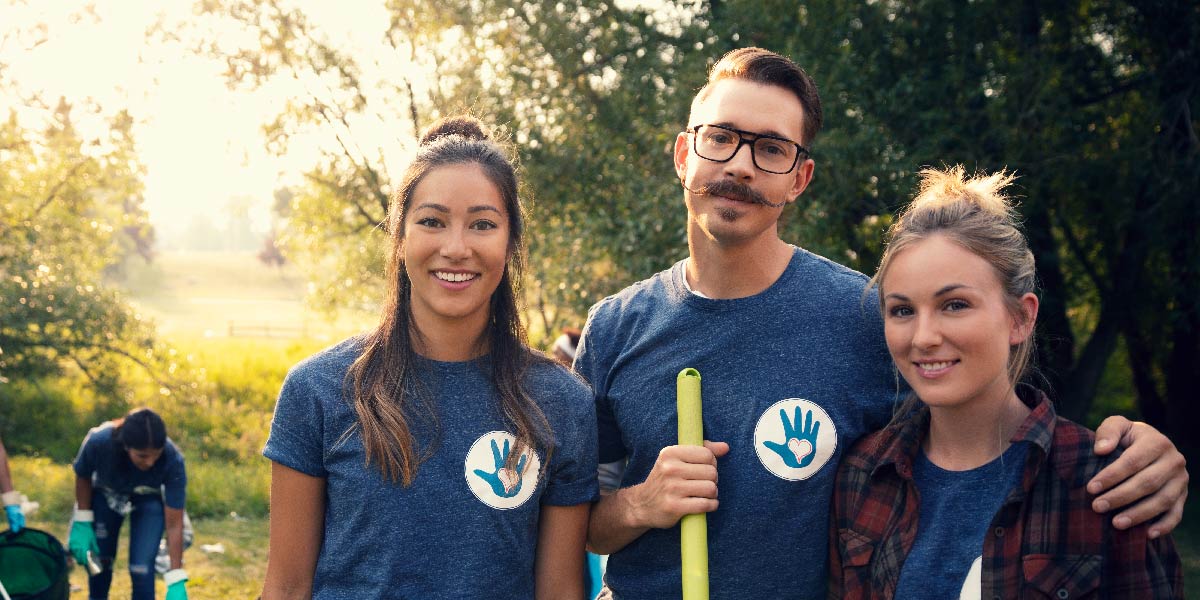Careers advice
How to make an impressive CV with no experience (with template)
Using the tips and tricks in this article, you’ll be able to craft a CV so impressive you'll want to hire yourself.
What you’ll learn:
- What you need to put on your first CV.
- Making the most of your volunteer or internship experience.
- How to talk about your education, regardless of when you stopped studying
- How to write a skills-based CV.
We’ll be honest – the CV you write for your first job will be the toughest.
Why? Because you probably haven’t had a full-time job yet – so what on earth do you include?
If you’re on the verge of a CV-induced meltdown, don’t give up, we’re here to help. Using the tips and tricks in this article, you’ll be able to craft a CV so impressive you'll want to hire yourself.
Before we dive in, if your job hunt needs to move faster than Will Jordan, and you want a high quality CV pronto, create a Trade Me Job Profile. Just enter your qualifications and skills, and it will generate a CV you can download and print – easy as.Alternatively, we have free, downloadable CV templates that you can use, with guidance on what information needs to go where. Feel free to check out the different designs, choose your favourite and use it in your next job application.
Don’t stress if you haven’t got experience to put on your CV – we got you.
What can you put on your first CV?
1. An objective and personal statement
The objective and personal statement (or profile) sections of your CV are super important when applying for a first job. They’re your chance to catch the hiring manager or recruiter’s eye, and be the candidate they remember.
For the objective section, outline the type of work you want, and the role and industry you’re interested in. This is usually the shorter of the two sections.
Your personal statement is a written elevator pitch. It tells the reader who you are professionally by briefly describing your core skills and achievements relevant to the role.
Here are three golden rules for nailing this section:
- Be concise: your audience doesn’t have time for essays. For a first CV, the 100-200 word mark is about right for both your objective and personal statement. Remember, you’ll also submit a cover letter with more detail.
- Strike a balance: adjectives such as ‘visionary’ or ‘genius’ are unlikely to get you far, but equally, don’t be too humble. The best way to show your value is to mention a couple of past qualifications or successes which apply to the role.
- Keep your objective clear: if you’re applying to a recruitment agency, being broad is fine – e.g. ‘I’m looking to develop my skills in a professional environment’. However, if you’re applying to a specific role, make your objective relate to it, or the industry sector.
Example objective and personal statement for a first NZ CV:
- Objective: “Having recently graduated with a Bachelor’s in Information Technology, I’m now looking for a software developer role where I can continue to develop and grow my skill set”.
- Personal Statement: “I’m an adaptable and hard-working carpenter’s apprentice now looking for my first full-time role. I’ve just completed my Level 4 New Zealand Certificate in Carpentry, where I gained a wide variety of technical and transferable skills that set me up for work on a broad range of projects. I’m always looking for ways to improve, and pride myself on my ability to identify and remove workplace hazards.”
Use your CV objective to show where you want to go professionally.
2. Volunteer experience and internships
Volunteer work or unpaid internships should take pride of place on entry level CVs for the following reasons:
- You’ve gained professional experience: volunteers and interns learn so much about the world of work during these experiences, so make sure it’s noticed.
- It shows commitment: to give up your time shows passion, drive and discipline – all of which make you a very attractive candidate.
- It sets you apart: if you’ve done this stuff and your competition hasn’t, guess who’s getting called to interview.
To list volunteer or internship experience on your CV, start with the most recent example and work backwards. Include details of who you worked for, the highlights of what you did, and the dates you did it for.
3. Your qualifications
This can mean anything from professional certifications to uni degrees to high school awards and more.
This section on any CV should contain:
- the type of qualification
- your final grade(s)
- the awarding body
- the dates of study
However, on a first CV, you can go into more detail than you might in later job applications. For example:
If you’re a uni graduate: your thesis will likely be the headline – you could include why you picked the subject you did, how you approached it and the results you achieved. This piece of work will be particularly helpful if the job is directly related to the course you studied.
However, don’t forget to include any secondary skills you picked up during your studies. For example, if you did a lot of data collection and analysis, this has a massive range of potential professional applications.
If you’re professionally qualified: focus first on the parts of your professional certification course that relate directly to the job you’re going for. However, if you specialised in any areas, including this detail can help the reader gain a better picture of your skills and experience.
Whether or not you have a uni degree or professional certification, you’ll want to put your NCEA or other school qualifications on your CV. We recommend keeping this short - list the subjects you studied and the grades you received. However, if there was something you particularly enjoyed or excelled in, feel free to draw this out.
Again, list your qualifications in reverse chronological order, with the most recent at the top.
Volunteer or internship experiences are great first CV fodder.
4. Your skills
A common tactic for getting around a lack of work experience is to go for a skills-based CV. These are CVs that, unsurprisingly, highlight your skills rather than specific examples of work experience.
To write a good skills-based CV, start by brainstorming all the capabilities you’ve picked up over the years. That summer you spent as a lifeguard at the local pool – perfect. The weekends on a neighbour's farm – ideal. That one time you helped set up a school fair – love it. You’ll have learnt something from all these experiences, and soft skills like communication, teamwork and leadership are highly valued by employers.
When including these skills on your CV, divide them according to what the job ad requires. For example – if you’re applying for a restaurant job that requires communication, cash handling and multi-tasking – make these your sub-headers, and include bullet point examples below each one.
Good examples of transferable skills you could look to include on your CV are:
- Communication
- Creativity
- Teamwork
- Adaptability
- Time management
- Cultural awareness
- Leadership
- Critical thinking
- Project management
- Customer service
- Budgeting
- Empathy
- Punctuality
You’ll have learnt more than you think from summer jobs, so include them on your CV.
5. Your hobbies
If you’ve got blank white space at the bottom of your CV, hobbies and extracurricular activities are a great way to show you’re a rounded individual who doesn’t spend their life in front of Netflix.
Sports, music, drama and learning foreign languages are all perfect examples of hobbies you can include on a CV. Not only can these provide talking points in first job interviews, employers prefer interesting people, and hobbies make you interesting.
Now, stop procrastinating and go write that CV – your first job is out there waiting for you. Don’t forget to set up a Trade Me Jobs Profile if you want to make a professional looking CV quickly and easily, or alternatively have a go with our free templates.
Other articles you might like




